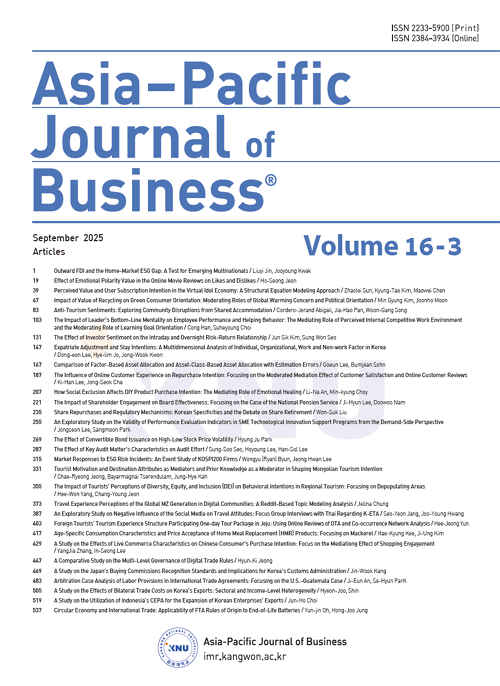해외파견자의 적응과 체류의도: 개인, 조직, 업무, 비업무 요인의 다차원적 영향에 대한 한국 사례 연구
Expatriate Adjustment and Stay Intentions: A Multidimensional Analysis of Individual, Organizational, Work and Non-work Factor in Korea
- 강원대학교 경영경제연구소
- 아태비즈니스연구
- 제16권 제3호
-
2025.09147 - 165 (19 pages)
-
DOI : 10.32599/apjb.16.3.202506.147
- 0

Purpose - This study aims to empirically analyze the effects of individual, organizational, work, and non-work factors on local adjustment and long-term stay intentions of overseas personnel dispatched to Korea. Design/methodology/approach - The research employs Partial Least Squares Structural Equation Modeling (PLS-SEM) for data analysis, and additional path analysis is conducted to understand the specific influences of each factor. Findings - The analysis reveals that individual characteristics and organizational support are positive factors that facilitate local adjustment. Non-work factors, particularly those related to accompanying family members, also demonstrate a significant positive impact. Conversely, work factors are found to have a negative influence, suggesting that the formal operation of mentoring programs may induce psychological burdens. Research implications or Originality - This study’s originality lies in empirically highlighting the critical impact of family adjustment on expatriate adjustment and stay intention, particularly within the unique Korean context, thereby challenging traditional work-centric research views. Furthermore, it introduces the concept of ‘counterproductive support’ by revealing that work factors can paradoxically hinder adjustment, emphasizing the necessity for ‘localized implementation’ of organizational support programs.
Ⅰ. 서론
Ⅱ. 이론적 배경
Ⅲ. 가설
Ⅳ. 분석방법
Ⅴ. 실증분석 결과
Ⅵ. 결론
References
(0)
(0)